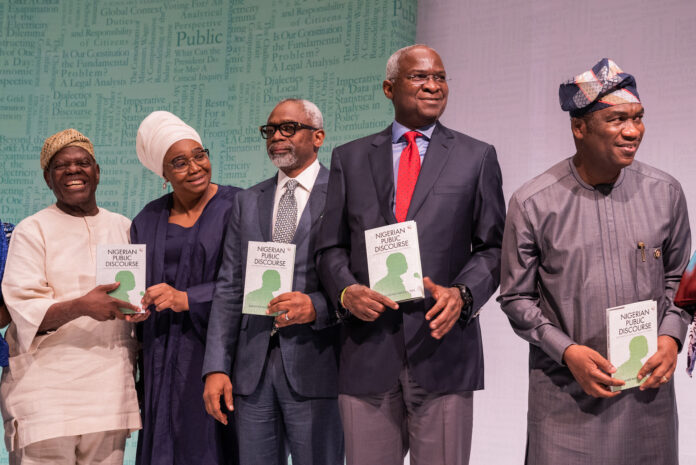Fashola Wants Constitution Review To Allow States Determine Minimum Wage
Former Minister of Works and Housing, Babatunde Fashola, Thursday, stressed the need for states to decide their own minimum wage, saying it was important for wages to move from the exclusive to concurrent list.
The position was contained in his book titled: “Nigerian Public Discourse: The interplay of empirical evidence and hyperbole,” which was presented in Lagos.
According to him, it is important for Nigerians to renew their mindsets and attitudes, in addition to the call to restructure the political and administrative arrangements.
The Lagos State ex-governor observed that as the nation grapples with the issue of minimum wage, he expected the voices of restructurers, apostles of true federalism and resource control to back the advocacy for diverse wages.
“Sadly, I have not heard those voices raised at the same decibel, as they have argued for restructuring,” he added.
Fashola said when the constitution amendment to allow for the creation of state police was voted down, very few of the champions of wholly federal arrangements raised a whimper.
He stated: “I have previously said, and I repeat my views, that multilevel policing by whatever name is called, is something that I agree with.”
The Senior Advocate of Nigeria (SAN) queried reason for true federal arrangement without decentralised law enforcement, observing: “when you have a decentralised judiciary and law making arrangement, shouldn’t states that make their laws have their own agencies to enforce them and local governments that make bylaws have their own community policing?”
He said even though proponents of restructuring have not been specific, some of them want a parliamentary, and not a presidential system of government.
Fashola maintained that in a parliamentary system, a prime minister might be in power for 16 years for as long as he is leader, “given our current realities and diversity as a people, is that desirable in our land?”
He pointed out that it was during the parliamentary system that the political crisis of the 1960s started, and with a combination of other factors, led to a civil war in which many died.
“They (younger generation) must read up about it and demand more explanation as to why it did not prevent our division from resulting in a full-blown civil war.
“Of course, we must not forget that the United Kingdom parliamentary system has produced four prime ministers in the last 12 years, including the incumbent. Do we want such rapid political leadership changes like this? What does it portend for policy consistency and continuity?
“All I can add is that empirical evidence has shown that diversity such as we have is better managed with a federal arrangement, and that this generation should look before they leap.”
Represented by his Chief of Staff, Femi Gbajabiamila, President Bola Tinubu underscored the need to regulate social media, noting that it has created a menace in the country.
“In this historical moment, as we confront and overcome the challenges that threaten our future, we have an obligation as leaders in politics and government to engage in evidence-based discourse and data-reliant decision-making as a matter of course.
“But as citizens interested in the issues of state and governance, the obligation is even more significant to ensure that our engagement with each other springs from a shared agreement on what truth is, what is real and what isn’t,” he advised.
On her part, founder, Chair Centre Group, Mrs Ibukun Awosika, said for the country to achieve greatness, it must have the courage to face the truth, noting that educated electorates are powerful tools.





